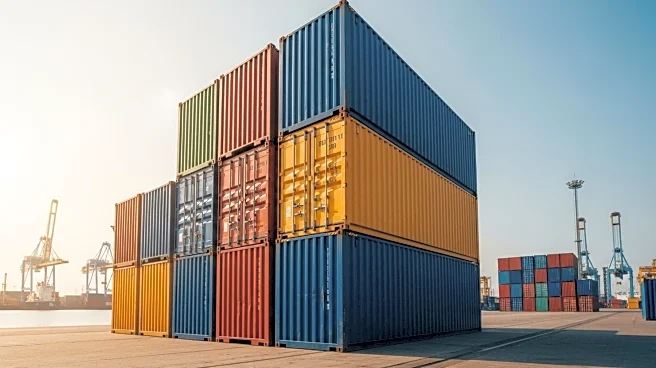What's Happening?
China has imposed sanctions on six U.S. companies as trade tensions between the two nations continue to escalate. The Chinese Commerce Ministry announced that three of these companies have been added to China's 'unreliable entity list,' effectively banning them from trading with China. The companies involved are Saronic Technologies, Aerkomm, and Oceaneering International, which have been accused of engaging in military-technical cooperation with Taiwan, undermining China's national sovereignty. Additionally, three other U.S. companies, including Huntington Ingalls Industries, Planate Management Group, and Global Dimensions, have been placed on China's export control list, restricting their access to Chinese shipments of dual-use items. This development comes despite a recent phone call between U.S. President Trump and Chinese leader Xi Jinping, where both sides expressed a desire to resolve trade differences.
Why It's Important?
The sanctions highlight the ongoing trade frictions between the U.S. and China, which have significant implications for global trade and economic stability. The targeted U.S. companies, particularly those involved in military and technology sectors, may face substantial operational challenges due to restricted access to the Chinese market. This move could further strain U.S.-China relations, impacting industries reliant on cross-border trade and cooperation. The sanctions also underscore China's firm stance on Taiwan, a sensitive geopolitical issue, and its willingness to leverage economic measures to assert its position. The broader impact on U.S. businesses could include increased scrutiny and potential retaliatory measures, affecting their global supply chains and market strategies.
What's Next?
The upcoming meeting between President Trump and Xi Jinping at a regional summit in South Korea may provide an opportunity for dialogue and potential de-escalation of trade tensions. However, the sanctions could complicate negotiations, as both sides may need to address underlying geopolitical issues, including Taiwan's status. U.S. companies affected by the sanctions may seek diplomatic channels to resolve the trade restrictions, while policymakers in Washington could consider reciprocal measures. The situation remains fluid, with potential for further developments depending on the outcomes of high-level discussions and the strategic interests of both nations.










